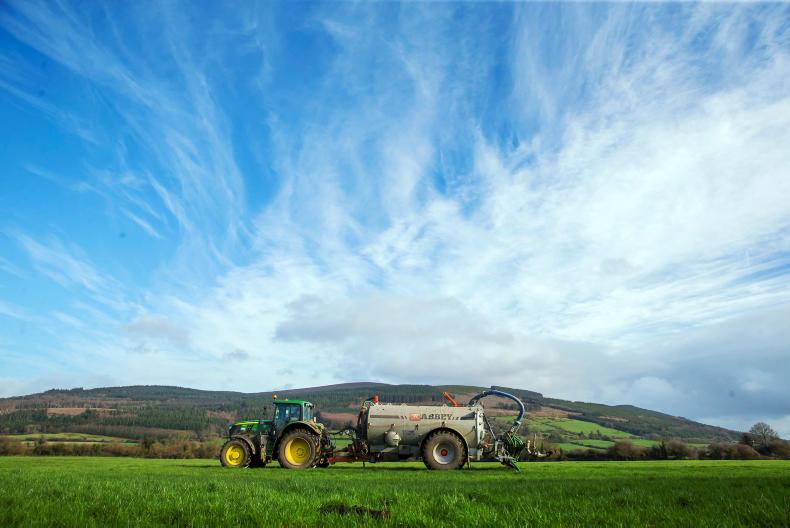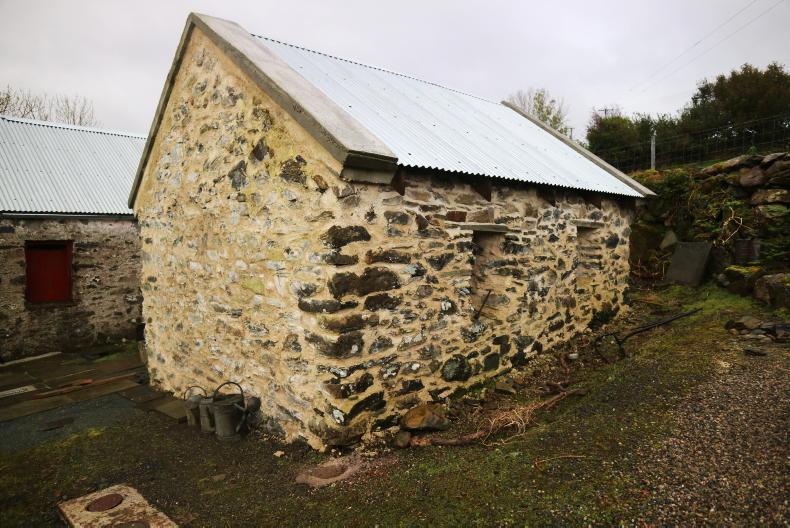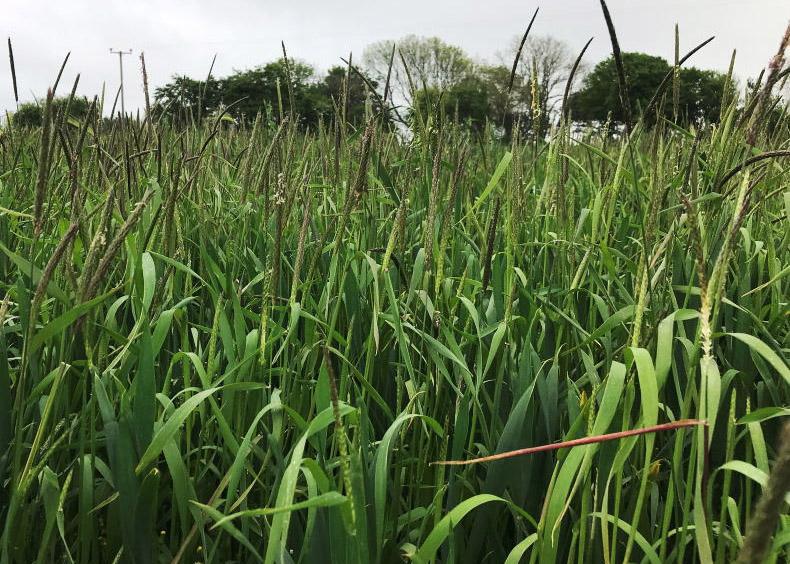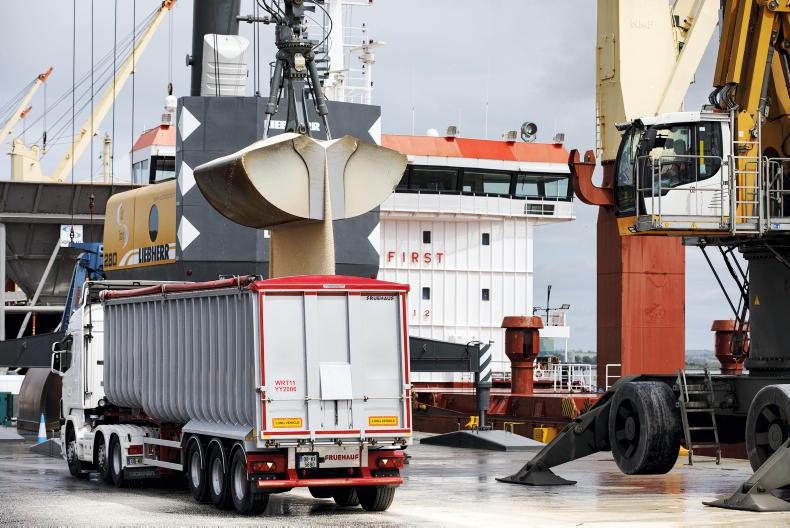Almost 19,000 farmers could face tougher rules on nitrates from the Department of Agriculture as it reviews the conditions of Ireland’s nitrates derogation.
It is considering forcing 18,384 farmers to abide by derogation rules, even though they are currently not stocked above 170kg N/ha.
Last year 6,891 farms were subject to derogation conditions, having applied for allowances to stock at a higher rate of 250kg N/ha.
The Department of Agriculture classifies a farm as “intensive” if it has a stocking rate greater than 130kg N/ha. A farm is considered “very intensive” if it is stocked above 170kg N/ha.
Currently, 17,420 farms fall into the intensive bracket and a further 7,855 are classified as very intensive. Combined, they account for 20% of Irish farms.
In a public consultation, open until 10 May, the Department of Agriculture has asked whether all intensive livestock farms should be subject to the conditions of the derogation, whether they apply for it or not.
The majority of Irish farms (60%) are lower stocked, at less than 85kg N/ha.
Water quality
The derogation review was prompted by a marked increase in the area of land being farmed under derogation since 2014.
Between 2014 and 2018, the area under derogation jumped by 34% to 445,200ha.
During the same period, the Environmental Protection Agency recorded a 3% deterioration in Ireland’s water quality and an increase in both greenhouse gas and ammonia emissions.
Speaking to agricultural consultants at a training day in Cork last week, Michael O’Donoghue from the nitrates division of the Department of Agriculture warned that the derogation facility should not be taken for granted.
He said the EU would be questioning Ireland on its derogation if the trend of decreasing water quality continued, adding that Holland and Denmark had seen their derogations withdrawn in recent years.
Read more
Public consultation on nitrates derogation launched
Nitrates derogation review due by June
Almost 19,000 farmers could face tougher rules on nitrates from the Department of Agriculture as it reviews the conditions of Ireland’s nitrates derogation.
It is considering forcing 18,384 farmers to abide by derogation rules, even though they are currently not stocked above 170kg N/ha.
Last year 6,891 farms were subject to derogation conditions, having applied for allowances to stock at a higher rate of 250kg N/ha.
The Department of Agriculture classifies a farm as “intensive” if it has a stocking rate greater than 130kg N/ha. A farm is considered “very intensive” if it is stocked above 170kg N/ha.
Currently, 17,420 farms fall into the intensive bracket and a further 7,855 are classified as very intensive. Combined, they account for 20% of Irish farms.
In a public consultation, open until 10 May, the Department of Agriculture has asked whether all intensive livestock farms should be subject to the conditions of the derogation, whether they apply for it or not.
The majority of Irish farms (60%) are lower stocked, at less than 85kg N/ha.
Water quality
The derogation review was prompted by a marked increase in the area of land being farmed under derogation since 2014.
Between 2014 and 2018, the area under derogation jumped by 34% to 445,200ha.
During the same period, the Environmental Protection Agency recorded a 3% deterioration in Ireland’s water quality and an increase in both greenhouse gas and ammonia emissions.
Speaking to agricultural consultants at a training day in Cork last week, Michael O’Donoghue from the nitrates division of the Department of Agriculture warned that the derogation facility should not be taken for granted.
He said the EU would be questioning Ireland on its derogation if the trend of decreasing water quality continued, adding that Holland and Denmark had seen their derogations withdrawn in recent years.
Read more
Public consultation on nitrates derogation launched
Nitrates derogation review due by June










SHARING OPTIONS